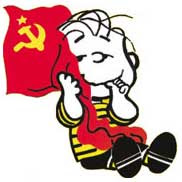Paul CrespoWhile some applaud Venezuelan President Hugo Chavez's return to power as a victory for democracy, recent events there actually highlight the severe damage done to Latin America's oldest democracy by the increasingly erratic and authoritarian Chavez.
Thursday, April 25, 2002
After three years of demagoguery, divisive rhetoric and left-leaning policies under this aspiring "caudillo," Venezuela's political institutions are a shambles, and the country is deeply polarized. This has left most Venezuelan democrats with few alternatives, and the military in a very difficult position.
Since his election in 1998 Chavez has been aggressively subverting Venezuela's democratic institutions while consolidating his grip on power. Using Cuban dictator Fidel Castro as his role model, Chavez has been employing democratic pretexts, referendums and a strange mixture of fascist and socialist ideology, rhetoric and strategy to try to transform Venezuela into a militarized one-party state. Initially popular, his undemocratic actions have more recently provoked massive opposition.
As his nascent "Bolivarian Revolution" crumbled and his popularity evaporated Chavez became increasingly paranoid and authoritarian. With less than 30 percent approval he nevertheless recently stated that he would be president until 2021. With his support in the legislature disappearing he has begun ruling even more by executive decree (enacting 49 laws in the last six months alone). As his troubles mounted, he repeatedly threatened to impose a "state of exception" and martial law.
For those criticizing the conservative military elements who opposed him we should recall that it is this leftist former lieutenant colonel (often wearing his military fatigues and red beret) who brought the military out of the barracks and into politics in the first place - first in his failed military coup in 1992 and more recently by placing them in key political and economic positions throughout the country.
No Military 'Eunuchs'
After his election Chavez told the armed forces they were no longer "political eunuchs" and his new constitution assigns them "active participation in national development" thus making them a political force. Active-duty and former military officers permeate his administration.
Under his "Plan Bolivar" the armed forces have been given control over a major government social program, ostensibly aimed at alleviating poverty. Evidence leaked from within however, has indicated that immense sums of money from this program have ended up in the bank accounts of several pro-Chavez generals.
Chavez's efforts at control have not been limited to politics or the military. He has also sought to impose socialist indoctrination in the schools (even importing hundreds of Cuban government teachers), tried to take over the national federation of trade unions (CTV), the national oil company (PDVSA), openly attacked the Catholic Church and persecuted the media.
Recently his vice president also created Castro-inspired armed para-civilian militias called "Bolivarian Circles" to support his regime, and Cuban agents have been integrated into Chavez's intelligence apparatus.
In response, an unprecedented broad cross-section of Venezuelans reacted to his growing authoritarianism with peaceful civil protest. When the mercurial demagogue turned to violence and ordered the military's help, members of the high command balked and withdrew their support. By encouraging Chavez's resignation they hoped to prevent further bloodshed and also keep "El Comandante" from using this self-inflicted crisis to fulfill his threats to impose a "state of exception" and martial law.
Ultimately the short-lived interim government of Pedro Carmona overstepped its bounds (reportedly against exhortations made by U.S. Assistant Secretary of State Otto Reich) when it dissolved the Chavez-created National Assembly. This provoked pro-Chavez supporters and emboldened Chavez to renege on his resignation pledge, prompting a reversal among some in the military. Soon thereafter a chastened Chavez was returned to the presidential palace at Miraflores.
We have yet to see if Chavez will finish his term, or if democracy will survive his return. It is certain though that if he remains true to form, Venezuela's democratic institutions will be damaged even further under his rule. His opponents are the ones trying to preserve what is left of Venezuela's tattered and stifled democracy.
The Bush administration was right to have said Chavez brought this crisis upon himself. Chavez is the real threat to Venezuela's democracy.
Paul Crespo served as a military attaché at the U.S. Embassy in Caracas in 1997. A former Marine Corps intelligence officer, he is an international risk consultant specializing in Latin America and a member of the Council on Emerging National Security Affairs (CENSA) in Washington.
Read more on this subject in related Hot Topics:
READ MORE:
http://archive.newsmax.com/archives/articles/2002/4/25/203939.shtml




















